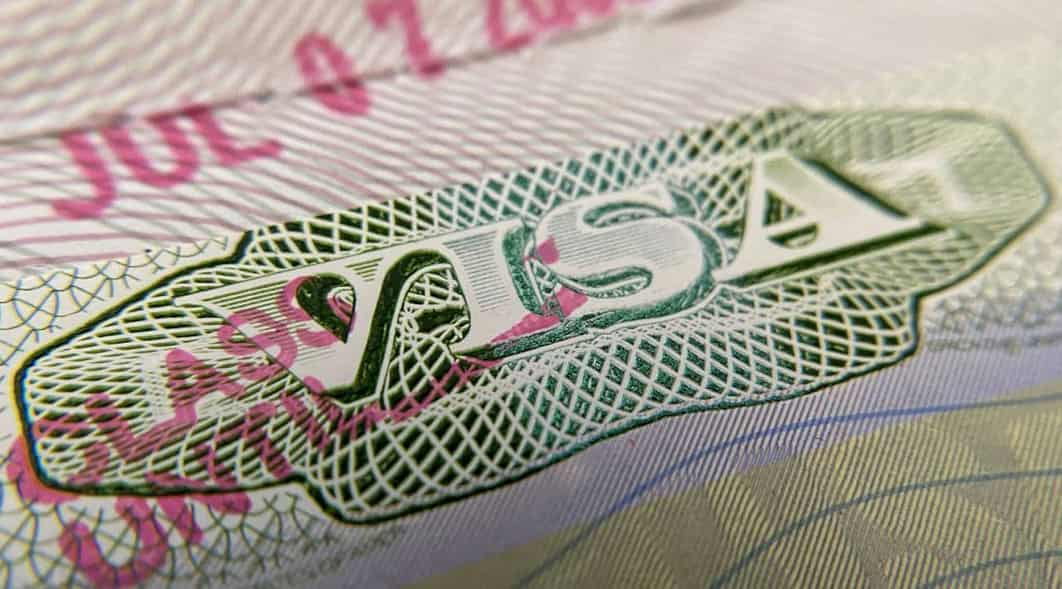Headline
Insecurity: Security Agencies Urged To Unite Against Terrorism In Nigeria

The National President of the Nigeria Union of Journalists, NUJ, Mr. Chris Isiguzo, on Thursday, tasked all security agencies to unite against terrorism and other related insecurity that is ravaging all parts of the country, especially now the 2023 general election is fast approaching.
Isiguzo made this known while addressing journalists from the 36 states of the country during the 7th triennial national delegates conference taking place in Umuahia, the capital of Abia State.
He expressed worries over the increasing insecurity in the country especially in the southeast region wherein some suspected hoodlums have continued to destroy valued properties worth millions of naira and killings of innocent citizens of the area.
According to him: “Let me commend the renewed determination by the Federal Government to end the protracted insecurity challenges ravaging some parts of the country, especially the insurgency in the North East and banditry, kidnapping in the North West and other acts of criminality that constitute a threat to the development of our nation.
“NUJ commend the courage and professionalism of our Armed Forces and appeal to Nigerians to unite against terrorism and other acts of insecurity rather than resorting to issues of politics that may not have any positive bearing in the fight against these evils.
“While we appreciate the fact that government has adopted new approaches that will tackle insecurity in the country, we urge that additional strategies be adopted to address the specific political, economic, and social challenges that encourage these security problems in general and the potential solutions that reduce them as the most reliable way forward.
“We encourage the government to listen to suggestions from well-meaning citizens who provide credible and workable alternative options in dealing with the devastating security situation and urge the government to be tolerant in dealing with the anger and frustration of the citizens.
READ ALSO: Benin Based Journalist Congratulates Astute Sport Enthusiast, Golfer On Birthday Anniversary
“It is in this regard that we frown at the various comments of some highly placed Government officials that accuse the media of over-blowing security challenges in the country before the international community.
“We caution that lack of adequate information can, at any stage of a conflict, make people desperate, restless and easy to manipulate. However, there is also the need for caution on the part of media practitioners particularly in the South-East to be more circumspect in the news they disseminate to the public concerning the insecurity in the region. The news being churned out to the other parts of the country with regards to the insecurity situation in the region is far from the reality on the ground.”
The National President however declared his preparedness to review the constitution of the union to checkmate quackery and other irregularities that are being perpetrated by enemies of the union.
“The NUJ in the coming administration is going to take a critical look at this monster trying to rare its head before it dents the image of practitioners.
“The good news is the fact that our automated identity card is already addressing the issue of quacks and fake media practitioners. Any individual who wants to belong to the NUJ must adhere to the provisions of the constitution with respect to membership,” he stated.
Headline
Why Europe Is Blocking More Nigerian Goods At Its Borders

Nigeria’s exports continue to face repeated rejection in European Union markets, a challenge caused by consistent quality failures, weak regulatory enforcement, and heavy dependence on raw commodities.
New trade figures further show that while export values expressed in naira have risen sharply, dollar earnings have continued to decline, undermining Nigeria’s competitiveness abroad.
Meanwhile, South Africa remains one of the African countries with the highest rate of export acceptance in Nigeria and the EU, highlighting the gaps between both economies’ standards and certification systems.
According to data from International Trade Centre (ITC) , Nigeria’s export earnings fell for a second consecutive year in 2024, dropping by 8.5% to $57.9 billion.
The figure had already declined from $63.3 billion in 2022 to $60.65 billion in 2023. In naira terms, however, total exports rose from ₦26.8 trillion in 2022 to ₦36 trillion in 2023 and surged to ₦77.4 trillion in 2024.
These increases reflect the naira’s steep depreciation, not an improvement in the volume or acceptance of Nigerian goods overseas.
Intelpoint data show that the naira weakened from ₦645.2 to the dollar at the end of 2023 to ₦1,478.9 in 2024, marking the sharpest yearly decline in a decade.
READ ALSO:US To Cut Military Aid To European Countries Near Russia — Official
EU border agencies have repeatedly rejected Nigerian agricultural and manufactured goods for failing to meet essential sanitary and phytosanitary requirements.
Frequent violations include excessive pesticide residue, poor traceability, contamination detected during inspection, and inconsistencies in certification documentation issued in Nigeria.
These failures stem largely from fragmented supply chains, weak monitoring capacity and a lack of internationally accredited laboratories.
South Africa, Morocco and Kenya maintain far stronger conformity systems, and South Africa in particular consistently delivers some of the highest acceptance rates across EU ports.
The ITC figures show that oil remains the backbone of Nigeria’s exports, contributing nearly 90 per cent of total earnings between 2022 and 2024. Over that period, the country earned $163.2 billion from crude oil out of total export revenues of $181.8 billion.
Despite this dominance, oil earnings have continued to fall, declining from $57.4 billion in 2022 to $55.6 billion in 2023 and then to $50.3 billion in 2024.
Because crude prices are determined externally and the product is exported with limited value addition, Nigeria gains little competitive advantage from currency depreciation.
READ ALSO:US To Cut Military Aid To European Countries Near Russia — Official
Non-oil exports recorded mixed fortunes. Cocoa earnings rose from $679 million in 2022 to $759 million in 2023 and climbed sharply to $2.6 billion in 2024.
Fertiliser exports fell from $1.9 billion in 2022 to $935.4 million in 2024. Ores and residues, however, increased from $158.6 million in 2023 to $824.4 million in 2024.
Despite positive growth in some sectors, quality problems have continued to undermine acceptance in Europe, particularly for foods such as beans, palm oil and processed crops.
Nigeria recorded stronger performance in African markets in 2024 due to the relative strength of the West African CFA franc.
Companies such as Unilever Nigeria, Cadbury Nigeria and Guinness Nigeria reported export sales of ₦22.8 billion in 2024, up from ₦9.92 billion in the preceding year. EU markets, however, maintain stricter inspection standards, and Nigeria’s structural weaknesses continue to limit penetration.
The country’s export structure remains heavily constrained by outdated processing technology, weak inspection capacity, irregular regulatory monitoring, and an overreliance on raw commodities.
READ ALSO:Putin Says Russia Ready For War, Blames Europe For Sabotaging Peace
Also, pipeline vandalism and crude theft also prevent Nigeria from meeting its production benchmark of 1.7 million barrels per day, despite a rise to 1.5 million barrels per day in 2024.
In December 2023, the Federal Government introduced the Trade Policy of Nigeria (2023–2027), aimed at aligning export regulations with World Trade Organisation rules and boosting global competitiveness.
The policy forms part of a wider reform agenda tied to the Medium-Term National Development Plan (2021–2025) and Agenda 2050.
Despite these initiatives, limited investment in quality assurance, industrial processing and standards enforcement continues to weaken Nigeria’s acceptance in high-value markets such as the EU.
Headline
US Imposes Visa Restrictions On Nigerians Linked To Religious Freedom Violations

The United States government on Wednesday announced visa restrictions targeting individuals involved in violations of religious freedom in Nigeria. The measures may also extend to immediate family members of the affected persons.
In a statement titled “Combating Egregious Anti-Christian Violence in Nigeria and Globally”, the Department of State said the restrictions were being implemented in response to mass killings and attacks on Christians by radical Islamic terrorists, Fulani militias, and other violent actors in Nigeria and elsewhere.
The statement explained that under Section 212(a)(3)(C) of the Immigration and Nationality Act, the State Department would now have the authority to deny visas to those who have “directed, authorised, significantly supported, participated in, or carried out violations of religious freedom,” with the policy potentially extending to their immediate family members.
READ ALSO:US Visa Adjudication Sparks Concerns Over Diplomatic Relations
It further cited former President Donald Trump’s remarks, noting that the United States “cannot stand by while such atrocities are happening in Nigeria, and numerous other countries.” The policy will apply to Nigeria and other governments or individuals implicated in violations of religious freedom.
The announcement follows growing international concern over attacks on religious communities in Nigeria, including targeted killings, abductions, and destruction of property attributed to armed groups.
Headline
Putin Says Russia Ready For War, Blames Europe For Sabotaging Peace

Russian President Vladimir Putin said on Tuesday that Russia was “ready” for war if Europe seeks one, accusing the continent’s leaders of trying to sabotage a deal on the Ukraine conflict before he met with US envoys.
The comments came as US envoy Steve Witkoff and President Donald Trump’s son-in-law Jared Kushner were in Moscow for high-stakes talks on ending the nearly four-year war, which were preceded by days of intense diplomacy.
“We are not planning to go to war with Europe, but if Europe wants to and starts, we are ready right now,” Putin told reporters in Moscow.
READ ALSO:Trump Blasts Ukraine For ‘Zero Gratitude’ Amid Talks To Halt War
“They have no peaceful agenda, they are on the side of war,” he added, repeating his claim that European leaders were hindering US attempts to broker peace in Ukraine.
He added that European changes to Trump’s latest plan to end the war “aimed solely at one thing — to completely block the entire peace process and put forward demands that are absolutely unacceptable for Russia”.
Washington has presented a 28-point draft to end the conflict, later amended after criticism from Kyiv and Europe, which viewed it as heeding to many of Russia’s maximalist demands.
READ ALSO:Trump Urged Ukraine To Give Up Land In Peace Deal Talks — Official
The plan to end the war is championed by Trump, but European countries fear it risks forcing Kyiv to cave in to Russian demands, notably on territory.
Fearing further Russian aggression, Europe has repeatedly said an unfair peace should not be imposed on Ukraine.
The Trump envoys are now seeking to finalise the plan with the approval of Moscow and Kyiv.
AFP

 News4 days ago
News4 days agoInsecurity: What Sheikh Gumi Told Me After Visiting Bandits Hideouts — Obasanjo

 News3 days ago
News3 days agoBREAKING: Ex-CDS Musa meets Tinubu At Aso Villa

 Politics5 days ago
Politics5 days agoTinubu Sends Ex-INEC Chair, Former Oyo First Lady, 30 Additional Ambassadorial Nominees To Senate

 Entertainment5 days ago
Entertainment5 days agoOrganizers Cancel Burna Boy’s US Shows After Fans Refused To Buy Tickets

 News4 days ago
News4 days agoFULL LIST: Wike revokes land belonging to Ilorin Emir, Lamido, Fayose, Iyabo Obasanjo, Others In Abuja

 News3 days ago
News3 days agoMOWAA: Why I Will Not Appear Before Edo Assembly Panel — Obaseki

 Headline4 days ago
Headline4 days agoUS: Four Killed, 10 Others Wounded In California Shooting

 Metro5 days ago
Metro5 days agoArmy, Air Force Crush ISWAP Fighters After Failed Chibok Attack

 Metro3 days ago
Metro3 days agoOsun Monarch’s Burial Rites Turn Bloody

 Entertainment3 days ago
Entertainment3 days agoFacebook, Instagram Suspend Idris Abdulkareem’s Accounts After New Song, Open Letter To Donald Trump




















